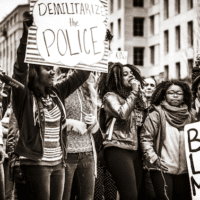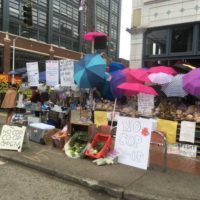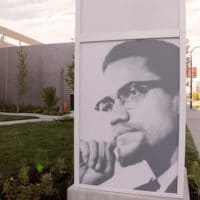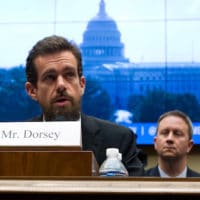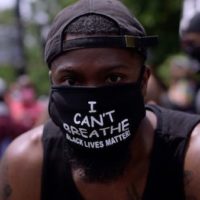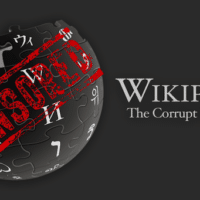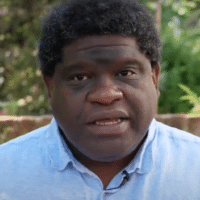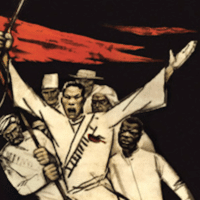-
If we’re going to defund militarized police departments, why not add the Pentagon?
The U.S. military’s budget, like so many police department budgets, is bloated, and diverts our tax dollars into forces of domination and violence. Now is the time to question our spending priorities at the local and federal level.
-
How LAPD chief William H. Parker influenced the depiction of policing on the TV show Dragnet
LAPD Chief William H. Parker was initially wary of Dragnet but also saw the opportunity to publicize his views on law and order. LAPD advisors closely examined the script to guarantee that the LAPD officers on Dragnet were ethical, efficient, terse and white.
-
Abolition will not be randomized
In the wake of the current uprising in support of Black Lives Matter, there has been increasing interest in the use of mainstream empirical methods in economics–like randomized control trials (RCTs) and administrative data evaluation–to address issues of racism and violence in the institution of policing.
-
Persecuted Egyptian LGBTQ activist Sarah Hegazy dies of suicide
30-year-old Sara Hagezy was in exile in Canada since her release from jail in 2018. She was arrested after she waved a rainbow flag at a concert in Cairo
-
Revolutionary ideals of the Paris Commune live on in Black Lives Matter autonomous zone in Seattle
The Capitol Hill Autonomous Zone in Seattle–or Chaz as it has come to be known–was set up on June 8 in the Capitol Hill area of Seattle. It came about as a result of BLM protesters moving in after the Seattle police abandoned the precinct due to clashes with protesters.
-
1973: Ernest Mandel on Marxism and ecology, ‘The dialectic of growth’
There is a fairy tale that Marx was first of all an admirer of technology and that he considered it ‘the foundation of what exists and the engine of the future’. Although this fairy tale has been refuted countless times, people continue to believe it.
-
An “Autonomous” three block-long Seattle street threatens America — what?
President Donald Trump from his New Jersey private golf club tweeted this past Friday morning June 12, that “The terrorists burn and pillage our cities.”
-
Shut up, Obama. Protesters don’t need your advice
Barack Obama has offered some advice to the protesters flooding streets across the United States. Not that anyone asked him, mind you. But he was the First Black President™, so people better shut up and listen.
-
“And This Happened in Los Angeles:” Malcolm X describes police brutality against members of the Nation of Islam
There was police brutality and there was atrocity, and the press was just as atrocious as the police. Because they helped the police to cover it up by propagating a false image across the country, that there was a blazing gun battle which involved Muslims and police shooting at each other.
-
Imperialism and India’s food economy
The problem before metropolitan capitalism therefore is: how to acquire control over the use of this tropical land-mass in order to obtain the products it needs?
-
Meet Wikipedia’s Ayn Rand-loving founder and Wikimedia Foundation’s regime-change operative CEO
Wikipedia has become a bulletin board for corporate and imperial interests under the watch of its Randian founder, Jimmy Wales, and the veteran U.S. regime-change operative who heads the Wikimedia Foundation, Katherine Maher.
-
Hawkish, Gov’t funded think tank behind Twitter decision to delete thousands of Chinese accounts
Twitter’s decision came after close collaboration with a deeply controversial U.S. and Australian government-funded think tank that has been denounced by Australia’s former ambassador in Beijing as “the architect of the China threat theory in Australia.”
-
Odetta – ‘Another Man Done Gone’
Odetta – Another Man gone Done
-
Atlanta Police shoot and kill Rayshard Brooks as protests demanding racial justice continue worldwide
“This is not the first time a black man has been killed for sleeping,” said Rev. James Woodall, state president of the Georgia NAACP.
-
Statement of Support for Black Lives Matter and Defund the Police
Between 1963 and 1972, there were more than 750 Black-led urban revolts in the United States in 525 cities. How did sociologists react?
-
Wikipedia formally censors The Grayzone as regime-change advocates monopolize editing
On Wikipedia, a small group of regime-change advocates and right-wing Venezuelan opposition supporters have blacklisted independent media outlets like The Grayzone on explicitly political grounds, violating the encyclopedia’s guidelines.
-
‘Harlem Streets’ – Immortal Technique
[May 1, Beltaine, Second high-Holy Day of the Year] On May 1,1776, a New world Order was born when the Masters of the Illuminati was founded, whose foundation would be built upon depravity and rebellion. It’s leader would be Satan.
-
Black Lives Matter & The Question of Violence | Gary Younge
“Riots are often justified, what’s the French Revolution but a riot blessed by history”
-
Community control Vs. defunding the police: A critical analysis
Defunding the police might end the armed and uniformed force as we know it, but the ruling class will then hire mercenaries to protect their wealth and enforce their will.
-
“A Question of Land and Existence”: An Introduction to Marx’s Anti-colonialism
Although a thorough assessment of Marx’s anti-colonial politics would have to devote substantial critical attention to its many limitations, my emphasis here is not on these limitations, but rather on aspects of Marx’s anti-colonialism that remain relevant, illuminating, and worthy of serious consideration today.



